Research Staff
Lead Investigator
-
A/Prof. Dr. Dina LoGiudice
A/Prof. Dina LoGiudice is a clinical researcher from the Department of Medicine, Dentistry and Health Sciences at the University of Melbourne, and Geriatrician at Royal Melbourne Hospital. Her research interests involve cognitive health and healthy ageing among Aboriginal and Torres Strait Islander communities.
For more information about A/Prof. LoGiudice's research interests, and relevant publications refer to the University of Melbourne Profile - A/Prof Dina Logiudice.
Chief Investigators
-
Prof. David Atkinson
-
Prof. Dawn Bessarab
-
Prof. Leon Flicker
Prof. Leon Flicker works out of the Faculty of Health and Medical Sciences at the University of Western Australia (UWA). To date, Prof. Flicker has had a distinguished career as a researcher in geriatric medicine focusing on frailty, successful ageing, and prevention of cognitive impairment and dementia among older Aboriginal and Torres Strait Islander Australians.
For more information about Prof. Flicker's research interests refer to the UWA profile - Professor Leon Flicker. For recent academic publications by the author refer to the UWA Research Repository for Prof. Leon Flicker. Links to external websites
-
Dr. Kylie Radford
Dr. Kylie Radford is a clinical neuropsychologist and Research Fellow leading the Aboriginal Health and Ageing Group at Neuroscience Research Australia (NeuRA). To date her research interests include healthy ageing and dementia care among Aboriginal and Torres Strait Islander Australians.
For more information about Dr. Radford's research interests and relevant projects refer to the Neuroscience Research Australia (NeuRA) Team Leader Profile - Dr Kylie Radford. Links to external website.
-
Dr. Kate Smith
Dr. Kate Smith is a researcher at the Centre for Aboriginal Medical and Dental Health (CAMDH), University of Western Australia Medical School. Her research expertise includes dementia prevention and management, Aboriginal health, quality of life and healthy ageing among Aboriginal and Torres Strait Islander Australians. Previously, Dr. Smith worked to develop the KICA-Cog (Kimberley Indigenous Cognitive Assessment) for use with older Aboriginal peoples in remote areas. Her recent research includes defining and predicting healthy ageing, and developing a quality of life tool for Aboriginal and Torres Islander Australians.
For more information about Dr. Smith's resarch interests and relevant publications refer to the University of Western Australia profile - Dr Kate Smith. Links to external website.
-
A/Prof. Edward Strivens
A/Prof. Eddy Strivens is a practising clinician and national leader in geriatric medicine and dementia, working in Far North Queensland for more than 20 years. He has worked extensively with local Aboriginal and Torres Strait Islander Communities and has validated the use of culturally appropriate cognitive assessment tools in these populations. He is practised in linking research with clinical outcomes in these communities.
He holds an academic position as Adjunct Professor at James Cook University. His research interests are in culturally appropriate assessment, healthy ageing, integrated care and models of service delivery.
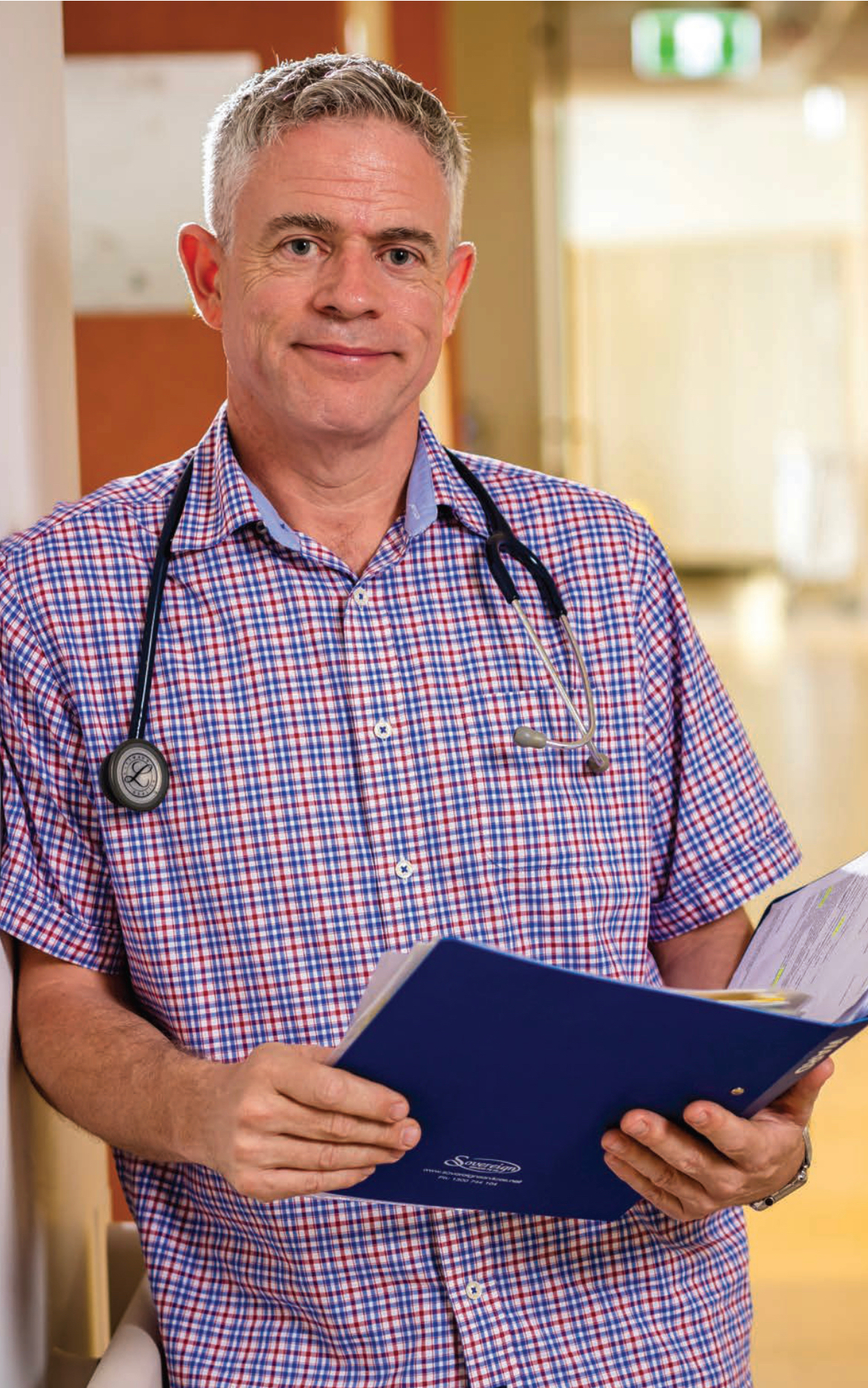
A selection of A/Prof. Strivens' relevant publications include:
- Mann, J., Quigley, R., Harvey, D., Tait, M., Williams, G., & Strivens, E. (2020). OPEN ARCH: integrated care at the primary-secondary interface for the community-dwelling older person with complex needs. Australian journal of primary health, 26(2), 104–108. https://doi.org/10.1071/PY19184
- Hamiduzzaman, M., Kuot, A., Greenhill, J., Strivens, E., & Isaac, V. (2020). Towards personalized care: Factors associated with the quality of life of residents with dementia in Australian rural aged care homes. PloS one, 15(5), e0233450. https://doi.org/10.1371/journal.pone.0233450
- Johnston, K., Preston, R., Strivens, E., Qaloewai, S., & Larkins, S. (2019). Understandings of dementia in low and middle income countries and amongst indigenous peoples: a systematic review and qualitative meta-synthesis. Aging & mental health, 1–13. Advance online publication. https://doi.org/10.1080/13607863.2019.1606891
- Elizabeth Buikstra, Edward Strivens, Robyn Clay-Williams “Understanding variability in discharge planning processes for the older person” Safety Science: 121 (2020) 137-146 https://doi.org/10.1016/j.ssci.2019.08.026
- Russell, S., Quigley, R., Strivens, E., Miller, G., Norrie, J., Craig, D., Jordan, J., & Muller, R. (2019). Validation of the Kimberley Indigenous Cognitive Assessment short form (KICA-screen) for telehealth. Journal of telemedicine and telecare, 1357633X19860309. Advance online publication. https://doi.org/10.1177/1357633X19860309
- Edward Strivens, Christine Stirling “It’s time to move from researching problems to providing solutions.” Australasian Journal on Ageing: 20 June 2019 https://doi.org/10.1111/ajag.12682
- Irina Kinchin E, Susan Jacups, Jennifer Mann, Rachel Quigley, Desley Harvey, Christopher M. Doran and Edward Strivens, (2018) “Efficacy and cost-effectiveness of a community-based model of care for older patients with complex needs: a study protocol for a multicentre randomised controlled trial using a stepped wedge cluster design” Trials 2018 19:668 https://doi.org/10.1186/s13063-018-3038-0
- Karen Johnston, Sarah Russell, Shanita Sen, Sefanaia Qaloewai, Edward Strivens(2018) “Cultural aspects of dementia: Australian and Fijian perspectives” Fiji Journal of Public Health Vol 7, Issue 1 41-42 http://www.health.gov.fj/eJournal/
- Judy A Lowthian, Glenn Arendts, Edward Strivens, (2018) “Australian recommendations for the integration of emergency care for older people: Consensus Statement” Australasian Journal on Ageing, https://doi.org/10.1111/ajag.12535
- Michele Foster, Desley Harvey, Rachel Quigley, Edward Strivens, (2017) "Care transitions as street-level work: providers’ perspectives on the dilemmas and discretions of older people’s transitions across acute, sub-acute and primary care",Journal of Integrated Care, Vol. 25 Issue: 3, doi: 10.1108/JICA-11-2016-0044-Highly Commended in the 2018 Emerald Literati Awards
- Craig D, Strivens E. Facing the times: A young onset dementia support group: Facebook style. Australasian Journal on Ageing Vol 35 No1March 2016 48-53
- Sarah Russell, Edward Strivens, Dina LoGiudice, Kate Smith, Edward Helmes, Leon Flicker. Ageling on Hammond Island: Is there cause for concern in the Torres Strait? Aust J Rural Health 2015 Mar 25. Epub 2015 Mar 25.
- Goldstraw, P., Strivens, E., Kennett, C., Lie, D., Geddes, J. and Thwaites, J. (2012), The care of older people during and after disasters: A review of the recent experiences in Queensland, Australia and Christchurch, New Zealand. Australasian Journal on Ageing, 31: 69–71. doi: 10.1111/j.1741-6612.2012.00613.x
- LoGiudice, D., Strivens, E., Smith, K., Stevenson, M., Atkinson, D., Dwyer, A., Lautenschlager, N., Almeida,O. and Flicker, L. (2011), The KICA Screen: The psychometric properties of a shortened version of the KICA (Kimberley Indigenous Cognitive Assessment). Australasian Journal on Ageing, 30:no. doi:10.1111/j.1741-6612.2010.00486.x
-
Prof. Sandra Thompson
Prof. Sandra Thompson is a public health physician, Professor of Rural Health at the University of Western Australia, and former Director of the Western Australian Centre for Rural Health (WACRH). Her broad research interests relate to addressing health disparities and include rural and Aboriginal health, prevention and management of chronic diseases, primary health care, systems and quality improvement, and health program delivery.
For more information about Prof. Thompson's wide-ranging research interests and relevant publications refer to the UWA profile - Sandra Thompson. Links to external website.
-
Adj. Prof. Mark Wenitong
Adjunct Prof. Dr Mark Wenitong is an Aboriginal and Torres Strait Islander medical graduate and a founder and past president of the Australian Indigenous Doctors Association, and has been involved in clinical primary health care in Aboriginal and Torres Strait Islander health as well as policy and research. He also has an interest in research translation both into policy and practice.
He is the medical advisor for a large regional remote ACCHS and also advises on both federal and state Aboriginal and Torres Strait Islander health policy. His main research interests are the intersection of early childhood, epigenetics and generational adult Aboriginal and Torres Strait Islander health improvements, including the influence of allostatic load, and ACE’s on Aboriginal and Torres Strait Islander health with respect to both childhood development and mental health over the lifespan and across generations.
A selection of Adj Prof. Wenitong's relevant publications include:
- Finlay S, Wenitong M. Aboriginal Community Controlled Health Organisations are taking a leading role in COVID-19 health communication [published online ahead of print, 2020 Jun 24]. Aust N Z J Public Health. 2020;10.1111/1753-6405.13010. doi:10.1111/1753-6405.13010
- McCalman J, Langham E, Benveniste T, Wenitong M, Rutherford K, Britton A, Stewart R, Bainbridge R. Integrating Healthcare Services for Indigenous Australian Students at Boarding Schools: A Mixed-Methods Sequential Explanatory Study. Int J Integr Care. 2020;20(1):8. Published 2020 Mar 9. doi:10.5334/ijic.4669
- Ketheesan S, Rinaudo M, Berger M, Wenitong M, Juster RP, McEwan BS, Sarnyai Z. Stress, allostatic load and mental health in Indigenous Australians [published online ahead of print, 2020 Mar 3]. Stress. 2020;1-10. doi:10.1080/10253890.2020.1732346
- McCalman J, Langham E, Benveniste T, Wenitong M, Rutherford K, Britton A, Stewart R, Bainbridge R. Integrating Healthcare Services for Indigenous Australian Students at Boarding Schools: A Mixed-Methods Sequential Explanatory Study. International Journal of Integrated Care. 2020 Jan;20(1).
- McLean A, Kirkham R, Campbell S, Whitbread C, Barrett J, Connors C, Boyle J, Brown A, Mein J, Wenitong M, McIntyre D. Improving models of care for diabetes in pregnancy: Experience of current practice in Far North Queensland, Australia. Frontiers in public health. 2019 July;7:192.
- Langham E, McCalman J, Redman-MacLaren M, Hunter E, Wenitong M, Britton A, Rutherford K, Saunders V, Ungar M, Bainbridge R. Validation and Factor Analysis of the Child and Youth Resilience Measure for Indigenous Australian Boarding School Students. Frontiers in public health. 2018 Oct 23;6:299.
- Jones R, Thurber KA, Chapman J, D’Este C, Dunbar T, Wenitong M, Eades SJ, Strelein L, Davey M, Du W, Olsen A. Study protocol: our cultures count, the Mayi Kuwayu study, a national longitudinal study of Aboriginal and Torres Strait islander wellbeing. BMJ open. 2018 Jun 1;8(6).
- Hua X, McDermott R, Lung T, Wenitong M, Tran-Duy A, Li M, Clarke P. Validation and recalibration of the Framingham cardiovascular disease risk models in an Australian Indigenous cohort. European journal of preventive cardiology. 2017 Oct;24(15):1660-9.
- Hua X, McDermott R, Lung T, Wenitong M, Tran-Duy A, Li M, Clarke P. Validation and recalibration of the Framingham cardiovascular disease risk models in an Australian Indigenous cohort: Does the current Framingham risk calculator accurately estimate true CVD risk for Indigenous Australians?. Canberra (ACT): Australia Primary Health Care Research Institute (APHCRI); 2017.
- Healing Foundation, Adams M, Bani G, Blagg H, Bullman J, Higgins D, Hodges B, Wenitong M. Towards an Aboriginal and Torres Strait Islander violence prevention framework for men and boys. The Healing Foundation; 2017. Jointly published by White Ribbon Australia.
- Redman-Maclaren ML, Klieve H, Mccalman J, Russo S, Rutherford K, Wenitong M, et al., editors. Measuring resilience and risk factors for the psychosocial wellbeing of Aboriginal and Torres Strait Islander boarding school students: Pilot baseline study results. Frontiers in Education; 2017: Frontiers Research Foundation.
- Mccalman J, Bainbridge RG, Redman-MacLaren M, Russo S, Rutherford K, Tsey K, et al., editors. The Development of a Survey Instrument to Assess Aboriginal and Torres Strait Islander Students’ Resilience and Risk for Self-Harm. Frontiers in Education; 2017: Frontiers.
Associate Investigators
-
Prof. Irene Blackberry
Prof. Irene Blackberry is the John Richards Chair of Rural Ageing and Aged Care Research, and Director of the John Richards Centre at La Trobe University, Wodonga. She is a health services researcher with broad interests in dementia, diabetes, primary care service delivery, and rural health. Currently, her research focus is on improving access to care delivery for older people with complex chronic conditions.
For more information about Prof. Blackberry's research interests and relevant publications, refer to La Trobe University - Professor Irene Blackberry. Links to external website.
-
Venessa Curnow
-
Gail Daylight
Gail is a proud and strong Kamilaroi woman. She started working at the Aboriginal Medical Service in Redfern in 1978 as a receptionist and worked her way up to being the Dental Coordinator.
Gail has had senior roles in the Public Sector, Local Government, the Department of Education and Training and NSW Health. In 1993, Gail was elected by the Sydney Aboriginal Community as an ATSIC (Aboriginal & Torres Strait Islander Commission) Councillor for a term of 3 years.
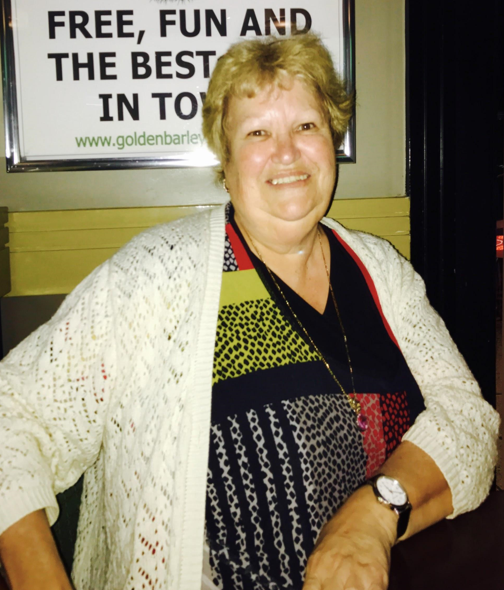
Gail has a passion for Aboriginal affairs and helping others. In 2012, Gail was inducted into NSW Aboriginal Health Hall of Fame at the NSW Aboriginal Health Awards in recognition for over 30 years of service to Aboriginal Health. Since retiring in 2015, Gail has been involved with the Jimmy Little Foundation, NeuRA (Neuroscience Research Australia), Stepping Stones House and the Aboriginal Medical Service, Redfern.
-
Prof. Briony Dow
Prof. Briony Dow is the director of the National Ageing Research Institute (NARI), a research institute affiliated with the University of Melbourne. She is Professor of Ageing at the School of Global and Population Health at the University of Melbourne.
Her broad research interests include mental health, carer wellbeing, and elder abuse among older people in the community.
For more information about Prof. Dow's research interests and relevant publications refer to the University of Melbourne profile - Prof. Briony Dow. Links to external website.
-
Prof. Kristen Jacklin
Prof. Kristen Jacklin is a Professor in the Department of Family Medicine and BioBehavioural Health, University of Minnesota Duluth, and Associate Director of the Memory Keepers Medical Discovery Team - Health Equity. She is the founder of the International Indigenous Dementia Research Network and the Indigenous Cognition Awareness and Aging Awareness Research Exchange (I-CAARE.ca). Her research interests include chronic disease care, ageing, cognitive health and dementia, and diabetes for Indigenous peoples, and Indigenous health/medical education.
For more information about Prof. Jacklin's research interests and relevant publications refer to University of Minnesota Medical School - Kristen Jacklin, PHD. Links to external website.
-
Paulene Mackell
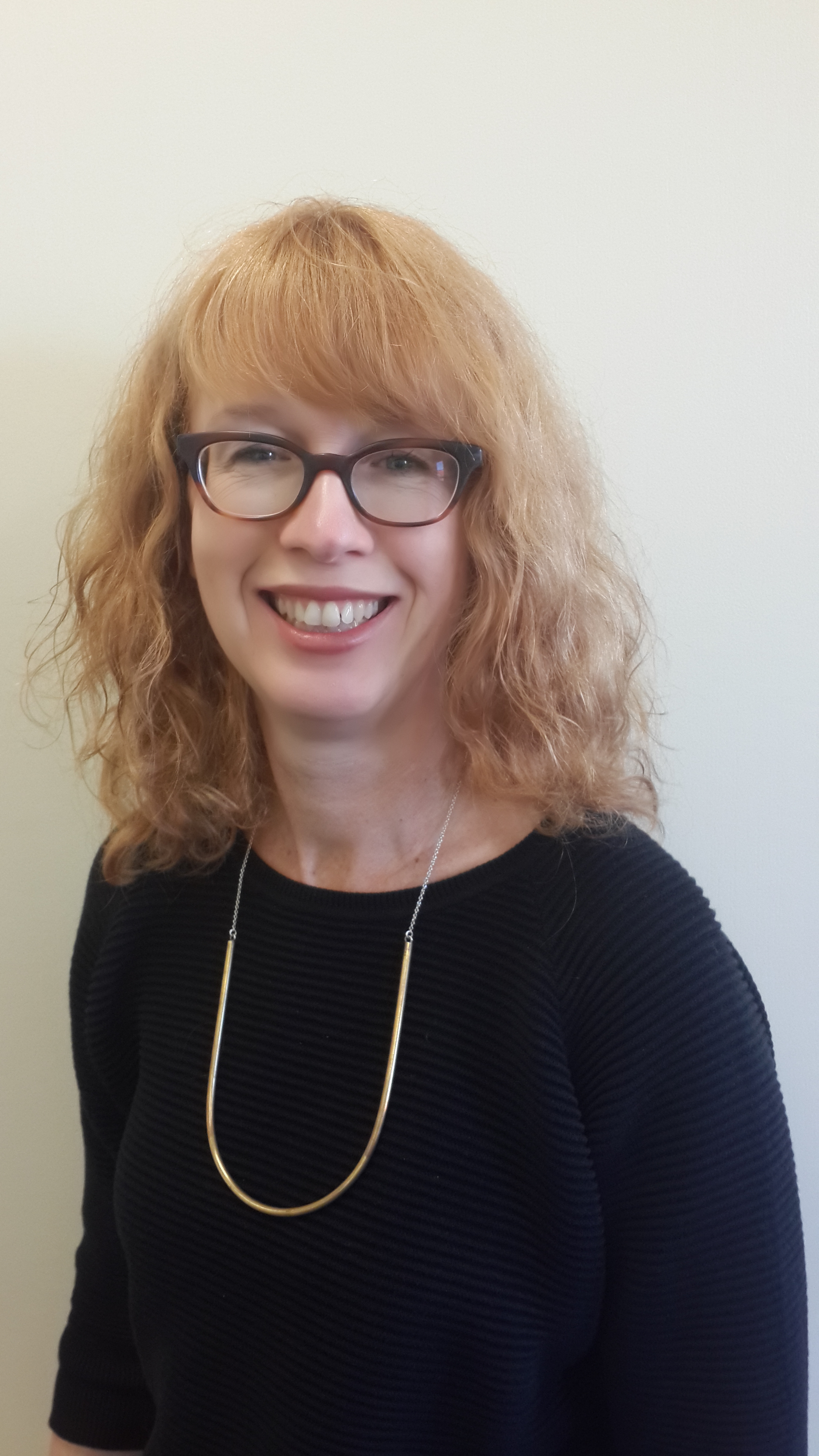
Paulene Mackell is a non-Aboriginal woman who has worked as a project manager and researcher at the National Ageing Research Institute (NARI) since 2012. Paulene's background includes Anthropology and Social Work and she has worked with older people, their families and communities in a range of health and aged care settings in urban, regional and remote areas of Australia. During her time at NARI Paulene has led the development and growth of a stream of research exploring how Aboriginal and Torres Strait Islander Community Controlled art centres keep their Elders strong and connected. Paulene is currently completing her PhD with a focus on how participatory methodologies facilitate research with three Aboriginal Community Controlled art centres and she has a strong interest in translating lessons from this work into policy, practice and research settings.
Recent publications by Paulene Mackell:
- Batchelor, F., Hwang K., Haralambous, B., Fearn, M., Mackell, P., Nolte, L., Detering,. K (2019), Facilitators and barriers to advance care planning implementation in Australian aged care settings: A systematic review and thematic analysis. Australasian Journal on Ageing, 1-9. https://doi:10.1111/ajag.12639
- Lindeman, M., Mackell, P., Lin, X., Farthing, A., Jensen, H., Meredith, M. and Haralambous, B. (2017), Role of art centres for Aboriginal Australians living with dementia in remote communities. Australasian Journal on Ageing, 36(2). 128–133. https://doi:10.1111/ajag.12443
- Haralambous, B., Mackell, P., Lin X, Fearn M, Dow B. (2017), Improving health literacy about dementia amongst older Chinese and Vietnamese Australians. Australian Health Review https://doi.org/10.1071/AH17056
-
Prof. Julie Ratcliffe
-
Dr. Sarah Russell
Dr. Sarah Russell is a clinical neuropsychologist working in the public system and in private practice. She is a founding member and principal research officer with the Healthy Ageing Research Team (HART) at James Cook University in Cairns. Her focus is on healthy ageing, with a particular focus on Aboriginal and Torres Strait Islander communities in far North Queensland.
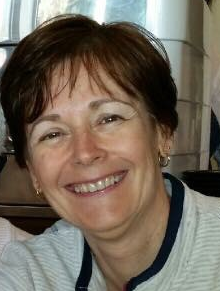 She completed a Masters and PhD in Clinical Neuropsychology at the University of Western Australia.
She completed a Masters and PhD in Clinical Neuropsychology at the University of Western Australia.For more information, Dr. Russell's research interests and relevant academic publications refer to the James Cook University Research Portfolio - A/Prof Sarah G Russell. Links to external website.
-
Dr. Andrew Stafford
Dr. Andrew Stafford is quantitative researcher at Curtin University and former Director of Dementia Training Australia, UWA. Dr. Stafford's recent research interests include dementia training, clinical geriatrics, and optimising medication use particularly among older people.
For more information about Dr. Stafford's research interests and relevant publications refer to the Curtin University Profile - Dr. Andrew Stafford. Links to external website.
-
Noeleen Tunny
Noeleen Tunny is the Executive Manager of the Policy and Research Unit at the Victorian Aboriginal Community Controlled Health Organisation (VACCHO) to advocate and build capacity of the community controlled sector within and beyond the health system, to address the social determinants of health. She works primarily in aged care reform and disability reform in the National Disability Insurance Scheme.
She has been working for over fifteen years in Indigenous health, more than half of that time in the Aboriginal community controlled sector. She chairs the National Advisory Group for Aboriginal and Torres Strait Islander Aged Care (NAGATSIAC) and provides strategic input to the Victorian Committee for Aboriginal Aged Care and Disability, the reference group for Aboriginal community controlled aged care providers and mainstream providers of aged care services tailored to the needs of Aboriginal people in Victoria, which is auspiced by VACCHO.
She is currently a member of:
- The Care@Home working group – involved in providing advice to Government on Aged Care Reform
- The Aged Care Sector Committee Diversity Sub Group – currently involved in the co-design of a National Aged Care Diversity Framework and associated action plan for Aboriginal and Torres Strait Islander communities
- The National Aboriginal Community Controlled Health Organisation (NACCHO) aged care leadership group
- The Ageing Disability and Mental Health Collaborative Panel, which has been established by Victorian peak bodies representing individuals and service delivery organisations across the ageing, disability and mental health sectors, to engage in cross-sector dialogue, collaboration and capacity building in response to common issues and themes impacting their sectors
Her recent and relevant publications include:
- Browne, J., Thorpe, S., Tunny, N., Adams, K., & Palermo, C. (2013). A qualitative evaluation of a mentoring program for Aboriginal health workers and allied health professionals. Australian and New Zealand journal of public health, 37(5), 457–462. https://doi.org/10.1111/1753-6405.12118
Project Manager
-
Dr. Jo-anne Hughson
Project Officers
-
Dr. Wendy Allan
Wendy’s research interests are in the area of ageing well, Indigenous health, grief and loss and Aged Care Services.
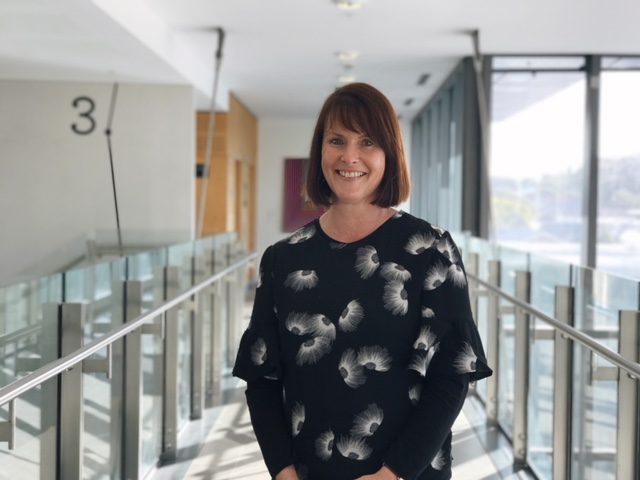
Clinically trained as a registered nurse Wendy has had an extensive career in academia. She completed her doctoral study in 2011 at Southern Cross University (Hampshire, W. J. (2011)) . Her background includes teaching, lecturing and curriculum development for undergraduate and post-graduate students, as well as service users and service providers in the areas of primary and community health and palliative care. She held senior positions as a Senior Lecturer and Course Coordinator of the Bachelor of Nursing Program at Southern Cross University 2002-2011. She is a Researcher at NeuRA for the Aboriginal Ageing Unit's Mid North Coast communities and also Let's CHAT Dementia coordinator for these communities.
-
Kate Bradley
Kate Bradley currently works at the University of Melbourne’s Department of Medicine - Royal Melbourne Hospital as a research assistant on the Let's CHAT (Community Health Approaches To) Dementia in Aboriginal and Torres Strait Islander Communities national research project. Prior, Kate worked for the Department of Aboriginal and Torres Strait Islander Partnerships as an archivist and as an archaeologist for the heritage consulting company Biosis. She holds a bachelor with a double major in archaeology from the University of Queensland and a Graduate Diploma Advanced in Australian Indigenous Studies from the University of Melbourne.
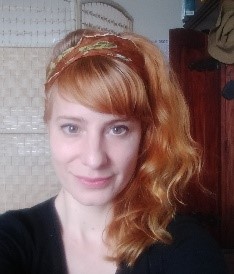
-
Diane Cadet-James
Diane is member of the Gugu Badhun nation of the Valley of Lagoons in Northern Queensland.
She has a background in Aboriginal and Torres Strait Islander education, supporting students to reach their full potential and families to navigate the system. Her other interests lie in research, working with groups and communities to ensure appropriate research protocols are in place and assisting researchers to engage respectfully and ethically with Aboriginal and Torres Strait Islander people in the research process.
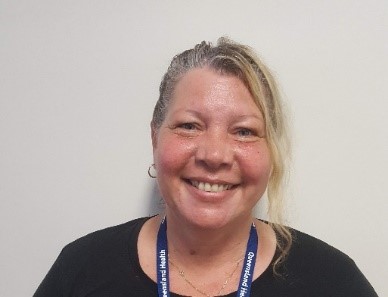
"My lived experience as an Aboriginal person in conjunction with qualifications and experience working in the Indigenous sector informs my approach to working to improve outcomes for Aboriginal and Torres Strait Islander people."
Currently, she is part of the Healthy Ageing Research Team undertaking a project to better understand what healthy ageing means for Torres Strait Islanders and working as a research officer on the Let's CHAT Dementia project.
-
Harold Douglas
Harold is a proud Gunnai man from south eastern Victoria. He is a research officer on the Let’s CHAT Dementia project and IRG co-ordinator, and also an Integrated Team Care Co-ordinator at the Victorian Aboriginal Health Service. Harry has worked as an aged care consultant and personal care assistant for 20 years and was also the manager of a planned activity group at the Aboriginal Community Elders’ Service (ACES) for a number of years. He was even the cook and gardener there for a while!

“I love working with my Community and in particular with Elders. I have found that taking a holistic approach to care, which might sometimes mean doing tasks outside the scope of my job description like taking people shopping, cooking them a meal, or physically taking clients to appointments, makes all the difference to my clients’ health and wellbeing. I have a lot of experience working with people on the dementia journey, and more recently have had the very personal experience of dealing with my mum’s diagnosis with dementia and the challenges of helping to care for her. I feel very strongly that the research that I’m involved with at Melbourne University is going to help my community improve their quality of life and get better, culturally appropriate support. I’m very keen to let Community know about what I’m doing and change perceptions about research and its potential value for Indigenous people, when it is conducted in a culturally and spiritually appropriate manner.”
-
Roslyn Malay
Roslyn Malay a Yurriyangem Taam Kija women from the East Kimberley of Western Australia and has expert knowledge on the complex social, environment and cultural issues that both affect and influence the health and wellbeing of older Aboriginal people in the Kimberley.
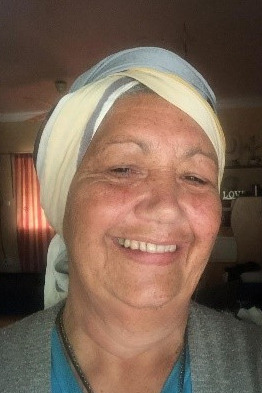
Roslyn has worked as a Researcher/ Project Officer of the University of Western Australia centre for Health and Ageing (WACHA) for 9 years. Roslyn have completed cert IV in Ageing support at the North Regional TAFE in Broome and is the Co - Chair of the Aboriginal and Torres Strait Islander, Australia Association of Gerontology Ageing Advisory Group.
Roslyn is one of a few Aboriginal research Officers working in the Kimberley and has been instrumental in improving the lives and Health of older Aboriginal Australia who live in the Kimberley. Roslyn is diligent and passionate about the health and wellbeing of older Aboriginal people. She has a passion for working in the area of Aboriginal ageing, particularly in remote community settings. She facilitates knowledge exchange of Aboriginal culture to non-Aboriginal people and has helped increase the awareness of dementia and cognitive impairment in remote communities in the Kimberley.
-
Dr. Bonnie Martin-Giles
Dr. Bonnie Martin-Giles is a researcher at the John Richards Centre for Rural Ageing Research. She is primarily working in collaboration with Melbourne University on the Let's CHAT Dementia Program. Bonnie has a background in Social Work and prior to this she worked as a lecturer at La Trobe University, in the homelessness assistance program at the Dandenong Drug Court, as a practitioner in Child Protection, as well as an internship in Darfur, Sudan, developing child protection programs in refugee camps.

Bonnie also has an interest in brain development and child protection, previously completing her PhD in this field examining whether existing neuroscientific research evidence supports the idea that chronic childhood maltreatment has a physiological impact on the developing brain, thereby placing individuals at greater risk of engaging in recidivistic offending in adulthood.
-
Rachel Quigley
Rachel Quigley is a physiotherapist working in the field of gerontology for over 20 years.
Rachel holds a research position with the Health Ageing Research Team (HART) at James Cook University, Queensland, Australia. This research role focuses on projects involved with dementia and ageing within Aboriginal and Torres Strait Islander populations in Far North Queensland as well as models of integrated care. She is undertaking a PhD through JCU, developing a framework of healthy ageing for the Torres Strait.
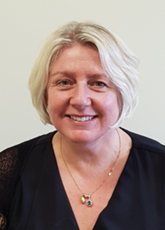
She also holds a clinical role in Cairns Hospital, as the Older Persons Liaison Advanced Clinician and has completed a MPhil through Griffith University focusing on the experiences of carers of older adults as they navigate aged care and health care systems.
-
Sadia Rind
Sadia is a proud Badimaya Yamatji woman from Mount Magnet in the mid-west region of Western Australia. She works as an Aboriginal Health Practitioner at Derbarl Yerrigan Health Service in Perth and is a research officer on the Let’s Chat Dementia project.
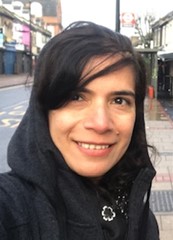
After graduating from Murdoch University obtaining a Degree in Politics and International Studies, Sadia worked for the WA State Government, Department of Justice and Department of Education where she focused on Indigenous related research, health, education, welfare, and legal matters. She has also worked for Federal Government agencies such as the Department of Human Services in welfare related enquiries and payments, and the Department of Social Services as a research and policy officer, which extended her experience in mental health related research mainly in Indigenous Communities of remote and very remote Australia.
"I have experience in building and maintaining positive relationships with Indigenous families by providing culturally appropriate support and assistance. I coordinate care and support for Aboriginal families by enhancing access to a range of education, health, wellbeing and family-based initiatives within the wider society."
-
Kylie Sullivan
Kylie is an Arrernte woman, born in Alice Springs & grew up in Melbourne then after travelling Australia settled on the Mid North Coast of NSW.
Kylie works with NeuRA as part of the Aboriginal Ageing Team in Coffs Harbour across two projects: Let's CHAT (Community Health Approaches to) Dementia, and Our Mob (Mind Our Brains) study, researching dementia in local Aboriginal Communities. Previously, she worked within Aboriginal Communities at Galambila Aboriginal Health Service.

"In my spare time, I enjoy the tranquility of spending time on my property, gardening, or heading to one of our glorious beaches, keeping fit, and catching up with friends."
-
Sharon Wall
Over 40years working in the area of ageing, Sharon has developed special interests and experience supporting those living with dementia. Sharon has also worked in the areas of education, research and clinical practice across the residential, community care and tertiary education sectors and embraces using creative teaching and learning practices when working with groups.
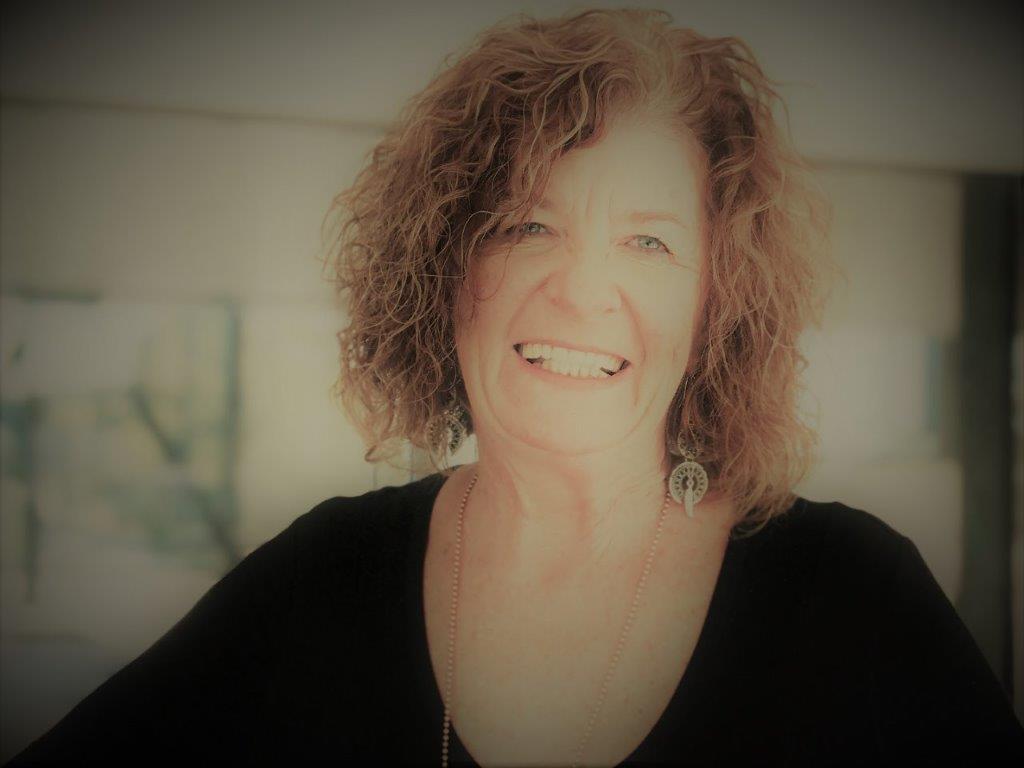 Sharon has worked as part of the Aboriginal Health and Ageing team at NeuRA (Neuroscience Research Australia) for almost a decade. She assists in the translation of research undertaken into practical resources and outcomes with Aboriginal and Torres Strait Islander communities. She is currently the Translational Research Manager working across all projects being undertaken by the team, and supports the Let's CHAT team in NSW with implementation aspects of the project, including staff workshops.
Sharon has worked as part of the Aboriginal Health and Ageing team at NeuRA (Neuroscience Research Australia) for almost a decade. She assists in the translation of research undertaken into practical resources and outcomes with Aboriginal and Torres Strait Islander communities. She is currently the Translational Research Manager working across all projects being undertaken by the team, and supports the Let's CHAT team in NSW with implementation aspects of the project, including staff workshops.
Consultants
-
Dr. Mary Belfrage
-
Robyn Smith
PhD candidates and student investigators
-
Huong Nguyen
-
Marycarol Holdaway
Marycarol is a master student from the University of Melbourne. She joined the Let's CHAT team early in 2020 and will be conducting a nested research project about medication prescription patterns and dementia risk in primary care. The project will contribute to her MD/MPH studies.